Traveling to Egypt can be an exciting and enriching experience, but for first-time visitors, the logistics of navigating the country’s airports can feel a bit intimidating. Whether you’re landing in Cairo, Alexandria, or one of the coastal resort cities, it’s important to understand what to expect and how to make your arrival smoother. This guide covers everything you need to know about Egyptian airports, from visa requirements to transportation options, so you can feel prepared and confident as you begin your journey.
- Egypt Tour Magic
- Egypt Tour Packages
- Excursions in Egypt
- Cairo Tours and Excursions
- Hurghada Tours and Excursions
- Soma Bay Tours and Excursions
- Makadi Bay Tours and Excursions
- Sahl Hasheesh Tours and Excursions
- El Gouna Tours and Excursions
- Marsa Alam Tours and Excursions
- Port Ghalib Tours and Excursions
- El Quseir Tours and Excursions
- Dendera and Abydos Day Tours
- Aswan Tours and Excursions
- Luxor Tours and Excursions
- Alexandria Tours and Excursions
- Sharm El Sheikh Tours and Excursions
- Top Rated Tours in 2025
- Optional Excursions in Egypt
- Private Transfer
- Blogs About egypt
- Ancient Egypt
- What You Need To know Before Your First Trip To Egypt
- Best Places to Visit in Egypt 2025
- Top Attractions in Red Sea Resorts 2025
- Top 10 Tourist Activities in Egypt
- Top 30 Activities You Can’t Miss in Egypt
- The Guide to Guided Tours in Egypt
- Egypt’s Ancient and Modern History
- The Nile River
- The Deserts of Egypt
- Historical Sites in Egypt
- Cairo
- Alexandria
- Luxor
- Aswan
- The Red Sea
- Dendera Temple
- El Fayoum Oasis
- Bahariya Oasis
- Siwa Oasis
- Al Alamein
- Marsa Matruh
- Ancient Egyptian gods
- famous Egyptian dishes
- UNESCO World Heritage sites
- About Us
- Why Egypt Tour Magic
- Egypt Tour Magic
- Egypt Tour Packages
- Excursions in Egypt
- Cairo Tours and Excursions
- Hurghada Tours and Excursions
- Soma Bay Tours and Excursions
- Makadi Bay Tours and Excursions
- Sahl Hasheesh Tours and Excursions
- El Gouna Tours and Excursions
- Marsa Alam Tours and Excursions
- Port Ghalib Tours and Excursions
- El Quseir Tours and Excursions
- Dendera and Abydos Day Tours
- Aswan Tours and Excursions
- Luxor Tours and Excursions
- Alexandria Tours and Excursions
- Sharm El Sheikh Tours and Excursions
- Top Rated Tours in 2025
- Optional Excursions in Egypt
- Private Transfer
- Blogs About egypt
- Ancient Egypt
- What You Need To know Before Your First Trip To Egypt
- Best Places to Visit in Egypt 2025
- Top Attractions in Red Sea Resorts 2025
- Top 10 Tourist Activities in Egypt
- Top 30 Activities You Can’t Miss in Egypt
- The Guide to Guided Tours in Egypt
- Egypt’s Ancient and Modern History
- The Nile River
- The Deserts of Egypt
- Historical Sites in Egypt
- Cairo
- Alexandria
- Luxor
- Aswan
- The Red Sea
- Dendera Temple
- El Fayoum Oasis
- Bahariya Oasis
- Siwa Oasis
- Al Alamein
- Marsa Matruh
- Ancient Egyptian gods
- famous Egyptian dishes
- UNESCO World Heritage sites
- About Us
- Why Egypt Tour Magic
First-Time Visitor’s Guide to Egyptian Airports
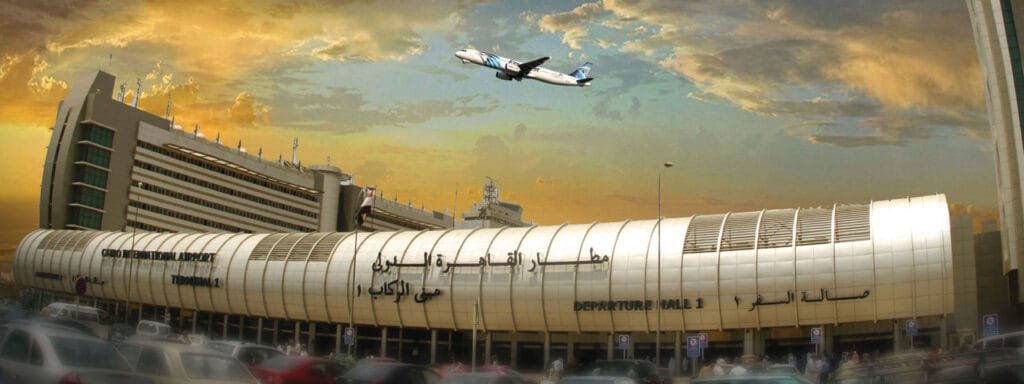
1. Major Airports in Egypt
Egypt boasts several major international airports, each serving as a gateway to different regions of the country. The most prominent airport in Egypt is Cairo International Airport (CAI), located about 15 kilometers (9 miles) northeast of Cairo’s city center. As the busiest airport in the country, Cairo International is the first point of entry for most visitors. It serves millions of passengers annually, offering a variety of amenities, including shops, restaurants, and lounges. If you're visiting popular tourist destinations like the Great Pyramids, the Egyptian Museum, or the Nile River, Cairo International is the airport most likely to be on your itinerary. Other significant airports in Egypt include Hurghada International Airport (HRG), which caters to travelers heading to Egypt’s Red Sea resorts, such as Hurghada, El Gouna, and Makadi Bay. This airport is a popular entry point for those seeking a beach vacation. Sharm El Sheikh International Airport (SSH), located on the Sinai Peninsula, is another well-known airport, especially for tourists heading to the luxurious resorts of Sharm El Sheikh, Dahab, and Taba. Finally, Alexandria Borg El Arab Airport (HBE) serves the Mediterranean city of Alexandria and is an excellent option for travelers planning to explore this historic coastal area. Whether you're flying into Cairo for the bustling city life or to a resort town for a relaxing vacation, Egypt’s airports offer convenient entry points to the country's diverse destinations.
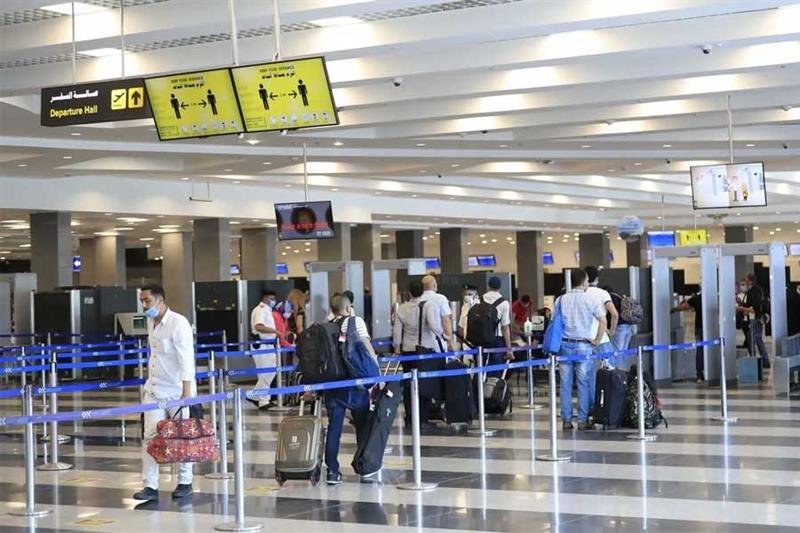
2. Airport Arrival Procedures
When you arrive at an airport in Egypt, the first step is going through immigration. Depending on your nationality, you may require a visa to enter Egypt, and the type of visa you need can vary. Many visitors can obtain a visa on arrival at the airport, while others may need to apply for an e-visa in advance. Egypt’s visa policy typically allows tourists from over 40 countries to obtain a visa upon arrival, including visitors from the United States, the European Union, and Australia. However, it’s crucial to check the visa requirements specific to your nationality before traveling, as these can change over time. Once you’ve cleared immigration, you’ll move on to baggage claim, where you can collect your luggage. Egypt’s airports are generally efficient in handling luggage, but it’s always a good idea to keep an eye on your bags to avoid any confusion. After collecting your luggage, you will pass through customs control. Egypt has strict regulations regarding what you can and cannot bring into the country, so make sure you're aware of these rules ahead of time. Most airports will have both “Nothing to Declare” and “Goods to Declare” lanes, and you'll need to select the appropriate one depending on whether you are carrying any restricted or taxable goods. After passing through customs, you'll enter the arrivals hall, where you can proceed to transportation options like taxis, shuttles, or private car services to your hotel.
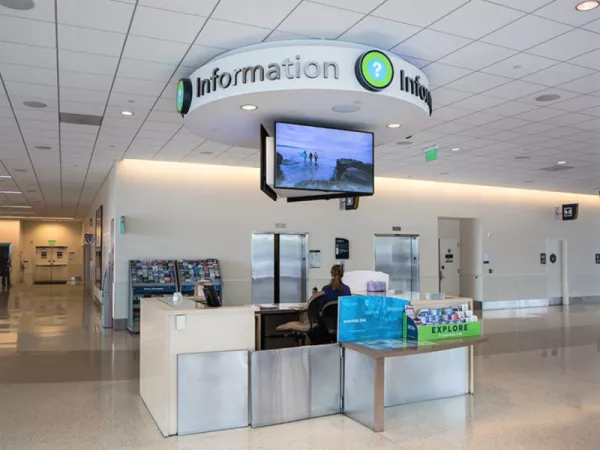
3. Airport Services and Amenities
Egypt’s major airports, especially Cairo International Airport, are well-equipped with a range of services and amenities designed to make your arrival more comfortable. Once you’ve passed through customs and immigration, you’ll find various services that can help you with anything you might need. Currency exchange counters are available at most international airports in Egypt, allowing you to convert your home currency into Egyptian pounds (EGP). You can also find ATM machines throughout the terminals, which are a convenient way to withdraw local currency if needed. For travelers looking to stay connected, many airports, including Cairo, offer free Wi-Fi, although the connection speed may not always be ideal. If you're in need of a local SIM card for your phone, SIM card kiosks are typically available at the airport, where you can purchase one for a relatively low cost. For those seeking a little relaxation, there are airport lounges where you can wait for your flight or relax after a long journey. Larger airports also feature duty-free shops, where you can purchase everything from local souvenirs to international luxury goods. In addition, you'll find cafes and restaurants offering a variety of food options, including local Egyptian cuisine and international dishes. For first-time visitors, airports in Egypt also have information desks that can help guide you to transportation options or provide general assistance. This can be especially helpful if you're unfamiliar with the airport layout or need help with your onward travel arrangements.

4. Getting to Your Hotel or Destination
After clearing customs and immigration at Egypt’s airports, the next step is arranging transportation to your hotel or destination. Most Egyptian airports offer a variety of options to get you from the airport to the city center or resorts. Taxis are readily available at airport terminals, but it’s important to use only official airport taxis to avoid being overcharged. At larger airports like Cairo International, you’ll find designated taxi ranks where official drivers wait for passengers. Before getting into a taxi, it’s a good idea to confirm the fare with the driver or ask for a meter to be used. If you prefer a more personalized experience, many visitors opt for private car services or use ride-hailing apps like Uber or Careem, which are available in Egypt’s major cities. Ride-hailing services are generally safer and more transparent in terms of pricing than regular taxis. If you're staying at a hotel, it’s worth checking with them before your trip to see if they offer shuttle services to and from the airport. Many upscale hotels provide this service to make the arrival process easier for their guests. For budget travelers, some airports also have airport buses that offer transport to key locations in the city. While these buses are more affordable than taxis, they may not be as comfortable or direct, so they’re better suited for travelers on a tighter budget. Regardless of your transportation choice, make sure to keep your belongings close and be aware of your surroundings as you head to your next destination.
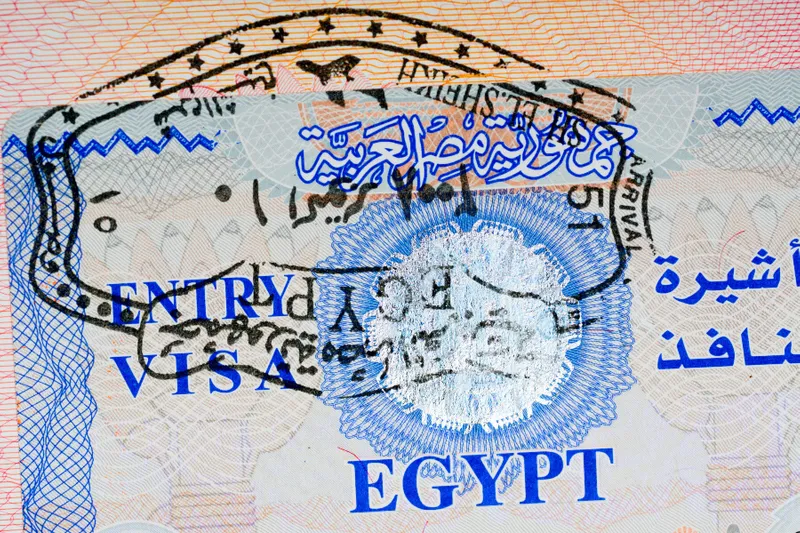
5. Tips for First-Time Visitors
Navigating Egypt’s airports as a first-time visitor can be overwhelming, but a little preparation can make the experience much smoother. Currency exchange is one of the most important considerations, as Egypt operates on the Egyptian pound (EGP). While major airports like Cairo International have currency exchange counters and ATMs, it’s a good idea to have some local currency on hand for small purchases, such as taxis or snacks. Safety is another important consideration. Egyptian airports are generally safe, but like any international airport, it’s wise to stay vigilant, especially in crowded areas. Pickpockets are known to operate in busy spaces, so keep your valuables in a secure, easily accessible place. While English is widely spoken at airports, learning a few basic Arabic phrases can go a long way in making your trip more enjoyable. Arabic is the official language of Egypt, and although most airport staff speak English, it can be useful to know greetings and common phrases like "Shukran" (Thank you) or "Min fadlak" (Please). When traveling through Egyptian airports, it's also important to dress modestly, especially if you're planning to take public transport or visit religious sites after your arrival. Egypt is a conservative country, and while there’s no strict dress code at airports, modesty is appreciated. Lastly, be aware of the weather conditions when traveling to Egypt. The country can be quite hot, especially during the summer months, so make sure to stay hydrated and wear comfortable clothing as you navigate the airport and head to your next destination.
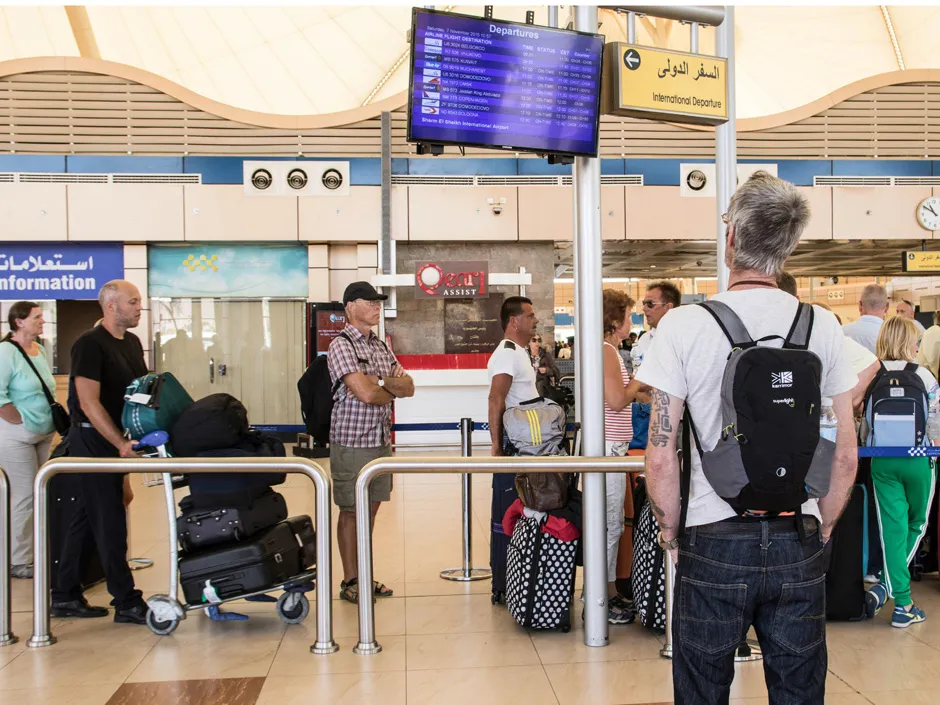
6. Customs Regulations
Understanding Egypt's customs regulations is essential for a smooth entry into the country. Egyptian customs rules are generally strict, particularly when it comes to prohibited items. Items like drugs, weapons, pornography, and certain types of religious materials are strictly prohibited from being brought into the country. If you're carrying any goods that are subject to customs duties or taxes, you will need to declare them at the appropriate customs checkpoint. Fortunately, customs control is generally efficient, and the process can be completed fairly quickly if you don't have anything to declare. Egypt’s government is keen on controlling the import of certain goods, such as fresh produce, which may require special permits for entry. For this reason, it’s wise to familiarize yourself with the list of prohibited or restricted items before you travel. If you're unsure about whether something you’re carrying is allowed, it’s always better to double-check ahead of time to avoid potential delays. Customs officials at airports can be strict, but as long as you follow the rules and declare anything necessary, you shouldn’t face any issues. Additionally, it's important to note that Egypt enforces strict regulations around the import of currency. Travelers are allowed to bring in a limited amount of foreign currency, but amounts exceeding the limit may need to be declared. Overall, customs procedures are straightforward, and as long as you're aware of the regulations, you’ll breeze through them with little trouble.


